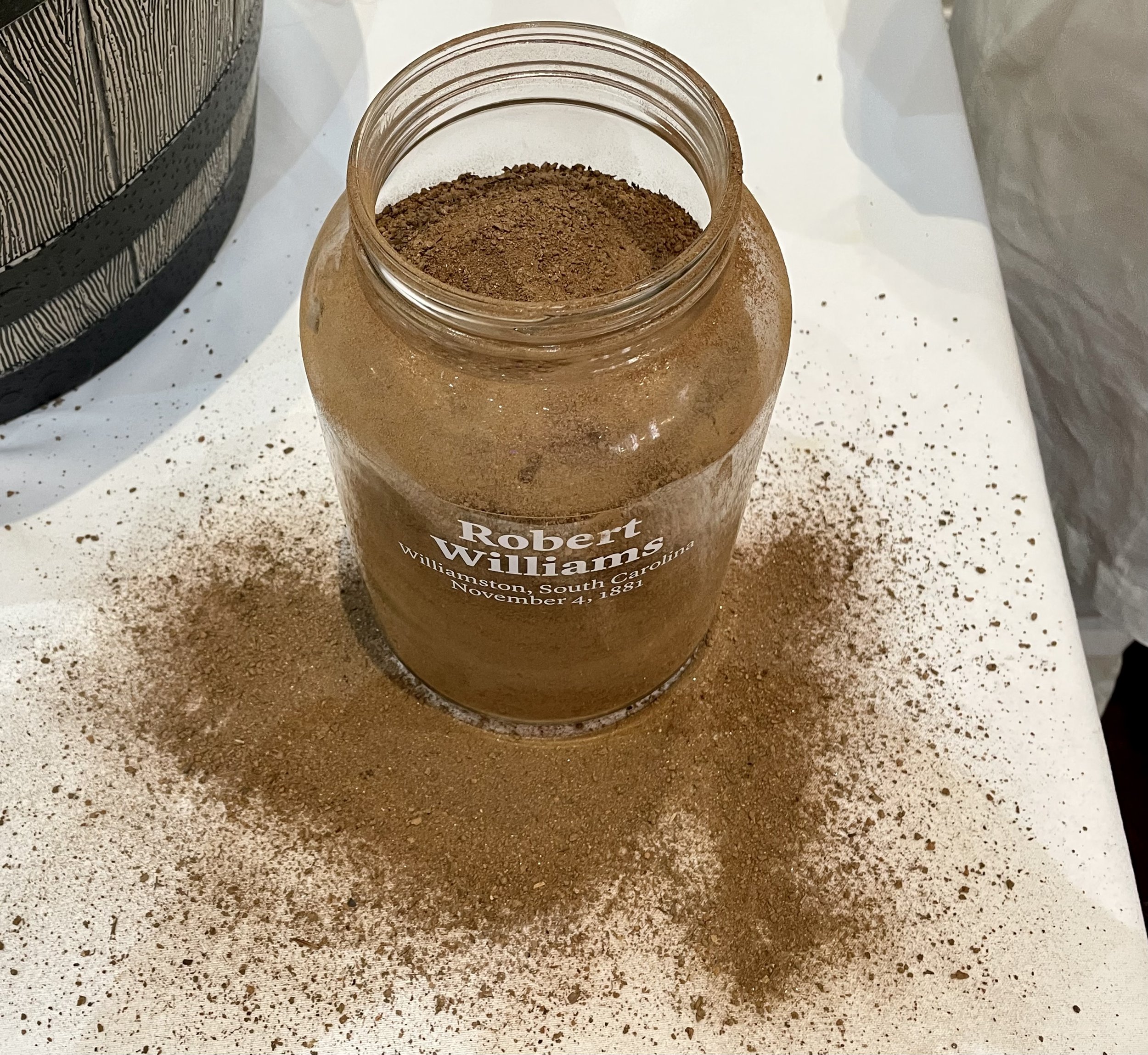
Robert Williams
-
Say His Name: Robert Williams
Williamston, Greenville County, South Carolina, November 4, 1881
At noon on November 4, 1881, a mob of more than 100 white people brutally lynched a young Black man named Robert Williams near Williamston, South Carolina. Mr. Williams was about twenty-one years old and made a living as a farm worker. He was a husband and father of two children. Accused of assaulting a white girl, Robert Williams was kidnapped from jail by a lynch mob and hanged near the Saluda River with no impartial investigation or trial.
During this era of racial terror, almost 25 percent of documented lynchings were sparked by charges of sexual assault, which were often unscrutinized due to the deadly stereotype that African American men were hyper-sexual and a dangerous threat to white womanhood. On November 3, a white girl, who worked in the same cotton fields as Mr. Williams, accused him of sexually assaulting her. A group of white men went to the plantation where he worked and arrested Mr. Williams to bring him to Williamston. Though the charges against him were not subject to further investigation, the accusation aroused the white community to violent reprisal.
At Williamston, Mr. Williams was briefly held in a local guardhouse, which served as a jail. White residents of Anderson and Greenville came to kidnap Robert Williams from the jail, intent on lynching him. Although Greenville County had a functioning legal system, Mr. Williams – like other African American victims of lynching – were denied access to due process and were instead subjected to mob rule. Contemporary news sources say that Robert Williams confessed his guilt before he was hanged, but during this era, confessions were often coerced from lynching victims to justify mob violence. Without a proper investigation, any confession made was more indicative of Mr. Williams’s fear than culpability.
The mob dragged Robert Williams across the Saluda River and into the woods in Greenville County. During a debate about how the mob would kill Mr. Williams, some proposed burning him in a brick kiln, demonstrating the cruel treatment they were willing to inflict upon him. It was not uncommon for mobs to employ torture and extreme brutality during lynchings, reflecting the devaluation of Black lives and bodies by white lynch mobs. Ultimately, the mob tied Mr. Williams to a tree over a hillside and stood him up on a horse. After the mob drove the horse from under him, Robert Williams fell, broke his neck, and died.
After the killing, the mob dispersed, and a local judge serving as coroner came to remove Mr. Williams’s body. He gathered a jury, which ruled that Robert Williams was killed by being hanged by unknown persons. Members of the jury, after choosing not to call forth any witnesses, said they were not able to identify any of the 100 mob participants, even though “the party of lynchers did not attempt to conceal their identity.” During this time when judges, prosecutors, and often juries were all white, white people were rarely indicted or convicted for the lynching of African Americans, as was the case for Robert Williams.
White press often justified the actions of violent mobs who killed Black people by furthering the myth that African Americans were inherently dangerous and guilty of the accusations against them, even without trial or supporting evidence. One paper published an editorial that stated, “the action of the citizens was not only justifiable, but that it was their duty as citizens and as members of society to have done what they did in the vindication of the purity of womanhood[...].” The paper approved of the mob and the lynching, which undermined the rule of law and the right to a fair and impartial trial. The editorial went on to say that, “the determination was quickly arrived at that if the prisoner was clearly guilty the Courts of the country should never be troubled with his case.” Though Robert Williams never had a chance to stand trial, he was presumed guilty and killed by a mob that was not held accountable for his lynching.
Robert Williams was one of at least four African American victims of racial terror lynching killed in Greenville County between 1877 and 1950, and one of at least 185 victims in the state of South Carolina.
Sources
The Cincinnati Enquirer, (Cincinnati, Ohio), November 7. 1881.
The Abbeville Press And Banner, (Abbeville, South Carolina), November 9, 1881.
The Newberry Weekly Herald, (Newberry, South Carolina), November 10, 1881.
The Intelligencer, (Anderson, South Carolina), November 10, 1881.
The Greenville News, (Greenville, South Carolina), November 22, 1881.
Equal Justice Initiative, Lynching in America: Confronting the Legacy of Racial Terror (3d Ed., 2017).












